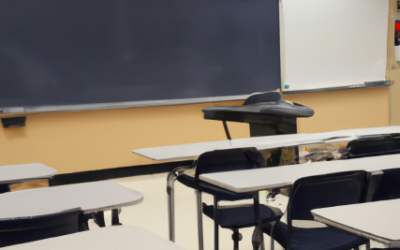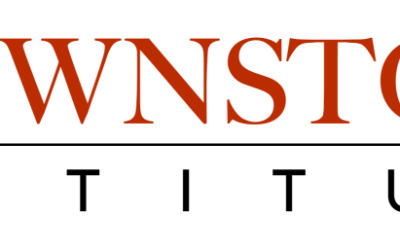Frontier Centre: The first charter school opened in Minnesota in 1991, now there are more than 2100 in the United States. Why have they been so popular?
Henry Zondervan: Charter schools are popular because they are providing a vastly needed improvement in choice and various alternatives of delivery within the public system. They are creating a stronger voice for parents, which is one of the main reasons why many are dissatisfied with the broader public system.
FC: What made the province of Alberta come to approve its Charter school legislation; how successful has it been?
HZ: Charter School legislation came about because a handful of parents and educators who believed that they could make a difference by lobbying their government to enact legislation that would enable greater choice in public education through charter schools. The work of many more small groups has now precipitated ten charter schools to which about 2500 students attend. That certainly isn’t large in terms of numbers, but in terms of its current impact in improving public education services, we think it is actually quite enormous. The ability to do that in the face of direct opposition from the propaganda of teachers’ associations and school boards’ associations is testimony to the fact that parents are interested in this kind of choice.
FC: Much of the public school establishment has equated charter schools with private schools. Is that the case?
HZ: Yes, there is certainly a myth that charter schools are private schools, that they are elitist and skim the cream of the crop. In reality charter schools are taking a large number of dissatisfied parents with public education and making them satisfied. They are taking students who are falling through the cracks and helping them become successful. As such, they are an improvement to the public system and, in no way, should they be considered divisive or categorized as publicly funded private schools. These are but myths perpetuated by their opponents.
FC: They are public schools?
HZ: Charter schools are public schools. They are an extension of the public school system and ought not to be confused with alternative, private or independent schools.
FC: How have Alberta’s ten chartered schools empowered parents? Contrast that with the level of input parents have with public school boards.
HZ: Parents elect school boards but unfortunately they have chosen, in many jurisdictions, not to be as responsive to parent’s needs as they should be. A charter school is operated by a group of individuals who are interested in making a difference in public education. They get involved in forming a society to operate a school with the intent purpose of allowing parents more direct influence into the governance and the operations of that school. They provide directives through policy to administration and then actively become involved in school on a day-to-day basis in a way that school councils would typically have been empowered to do so. They have the added advantage of being able to create policies that ensure the administration will be responsive to the input of parents within the school.
FC: The board and the principal, in fact, have the power to hire and fire personnel, including teachers. Yes or No?
HZ: That is correct.
FC: Could this be one reason why, let’s call it, the public education establishment seems to distrust charter schools?
HZ: It certainly takes away a level of influence that unions would tend to protect. The unions say that they are not in the business of trying to keep bad teachers, but they certainly create a structure of bureaucracy that makes it difficult for parents to work through teachers, principals, superintendents and school boards to have their concerns met or addressed in an appropriate way.
FC: You contrasted the experience grid of the traditional system with the performance grid of the charter school yesterday. Could you explain that?
HZ: Yes, in our particular school we have moved from the typical experience grid where a teacher’s salary is determined by the number of years of post-secondary training that they have and the number of years that they have been teaching. We don’t happen to believe that simply teaching a year constitutes a year’s growth and improvement. Teachers need to earn their increments, not just by putting in time but actually by adding value to the organization through their performance and continued growth and improvement each year. Increments should not be automatic just because you put in another year. There must be demonstrable evidence of sound teaching practice and performance as measured by the teacher’s contribution and an evaluation of the students’ performance as well.
FC: Does this allow teachers to earn more money than they would in the public system?
HZ: Yes, it does. Our base salaries are competitive with the public schools in surrounding jurisdictions. In addition teachers have the opportunity to earn more through a merit/bonus pay system that evaluates their individual contribution and performance in the school.
FC: How important were standardized tests in making the need for charter schools apparent?
HZ: Standardized tests are critical in providing information to the school about its practices. In order for any of us to become effective and efficient in what we do, we must be open to evaluation. I always say in our particular school that excellence does not fear observation. As such students are going to be measured and teachers are going to be measured on an on-going basis – not to label or criticize or condemn – but simply to find a means by which we can collect information for growth and improvement.
FC: The government of Manitoba recently removed standards testing here. What is you candid opinion on that?
HZ: It’s a mistake. They are needed to monitor and track whether schools are actually doing what they are supposed to do, which is to teach children. The evidence should be in the results of the performance on these tests and, as such, these need to be undertaken. They need to be written, they need to be used in a meaningful way to continue to improve education in our schools.
FC: Charter schools in Alberta must still conform to the province’s curricula guidelines. Has this restriction stifled their ability to specialize?
HZ: No, not at all. Certainly the basic requirements for provincial achievement testing for grades three, six and nine and diploma exams in Grade Twelve set out core expectations which can be accomplished fairly easily in whatever type of program a charter school and/or public school might put forward. They are general learning outcomes that would be considered just sound practice and core knowledge for all students. There is plenty of time to enrich and enhance programs to improve and extend the mandated curricular boundaries.
FC: You said that the Edmonton School Board now allows more than thirty different programs of curricula within its jurisdiction. Was this new diversity in public schools a direct response to the charters?
HZ: No, I don’t think it was. The Edmonton public board had been progressive in establishing alternative schools over a number of years and I certainly commend the leadership within that system with regards to the development of a number of different choices. Unfortunately, the thirty-one choices that they currently have available – has not added to a stronger voice for parents in operating those schools. I am not convinced that the learning outcomes have been significantly changed, altered improved or enhanced — which is the mandate of a charter school. Charter Schools don’t exist unless they can provide a unique program that does improve and enhance student learning and the results. Edmonton’s approach has certainly limited the number of charter schools that may have been considered in that area.
FC: Alberta is stalling approving new charters – is that a permanent situation? You have ten charter schools in Alberta – do you expect that ceiling to be lifted or to be abolished?
HZ: Currently, we have ten. The Charter School regulations allow for fifteen. We have not had any new charter schools approved over the past three years. Certainly roadblocks at the local school jurisdictions, where initial approval is sought, and reluctance by the government to push forward on the development of charter schools has limited any advancement in terms of the number of schools. In fact, the school act is now being rewritten to further promote alternative schools. Now groups of individuals who might have anticipated operating a charter school must now first apply to the local school board for an alternative school and, if that is not granted, then they may appeal to the Minister for a charter school.
FC: So, there doesn’t seem to be a movement to try to increase the number of charter schools but simply a way to try to manage choice within the existing public school system. What is the waiting list at your charter school?
HZ: Over 3,500 students are waiting to get into our K-9 school.
FC: How do you deal with the “cherry-picking” argument that somehow the less sophisticated student will not benefit?
HZ: It is another myth of charter school education that only the best students and the best parents are coming. It is true that this is a school of choice and, as such, people who come are made aware of what our mission is and what our focus is and what our expectations are. They are expected to work within those guidelines. We have the opportunity to coach people to an understanding of what we do and they have the opportunity to leave if they don’t like the choice that they have made. We have seen by the registration statistics, that we carefully track and keep from year-to-year, that many of our students are below grade level when they come to us and their parents have become largely dissatisfied with public education. Helping these students to grade level and beyond and satisfying the concerns of the parents, has got to be seen as a win-win situation.
FC: So have you ever turned anybody away?
HZ: In the first two years we only had enough time with everything else we had to do, to simply take whoever came next on the list and wanted to come. In the past two years we have done entry-level assessments on an academic basis and have never refused any student based on behaviour. We have not taken students who require special education services. If students are more than a grade level behind in math and language skills, we consult with the parents to place their child in a lower grade level. If this is not acceptable to the parents we try to help them find an alternative program somewhere else that might be able to deal more individually with the needs of that child.
FC: Traditionally, the teachers’ unions have been suspicious of charter schools but you talked about how it was changing in the U.S. Can you elaborate?
HZ: Yes, we have seen over a ten-year period the United States grow from one charter school in 1991 to over 2,100 schools and over half a million students now in attendance at charter schools. Wherever charter schools have been considered, school boards’ associations and teachers’ associations have adamantly opposed their enabling legislation. It is interesting now in some states that the teachers’ associations are now waking up to the realization that Charter schools are meeting needs within public education and turning dissatisfied parents into satisfied parents. In Florida the Teachers’ Association in conjunction with the Edison Foundation hopes to open 10 Charter schools in the near future.
FC: So they are becoming competitive?
HZ: In the face of success they appear to be willing to get with the program. They don’t want to be left behind.
FC: There was a comment that charter schools are a minor development and that the great bulk of students is still in the established public system. It downplayed charter schools.
HZ: It is unfortunate that the voices of leadership within public education would want to minimize improved choice for parents and an opportunity for them to have a greater voice. The current state of dissatisfaction of parents in public education testifies to the fact that we have not responded to the needs of parents and students over the last decade and, as such, we need to change. Reforms in public education are needed to improve school practices and teaching for the benefit of the children in our society. Charter schools are an effective and efficient way to bring about some of those changes.
FC: Can you just sum it up – what is the experience with the student results in charter schools?
HZ: A new study has just been started in Alberta to take a two-year look at the achievement of students in charter schools. I can speak for Foundations for the Future charter academy in that we have seen that the average growth of our students is one and a half grade levels per year on the Canadian Test of Basic Skills. That means that by grade eight average students will be performing at a Grade 12 equivalency on basic skills testing. The Alberta Provincial achievement tests expect 15% of students to be at the excellent level. At FFCA 60-70% of our grade nine students are approaching this level scoring 85% or better on these provincial exams. All students can learn – all students can get an “A” grade with effective teaching processes and programs.
Read on PDF here.


